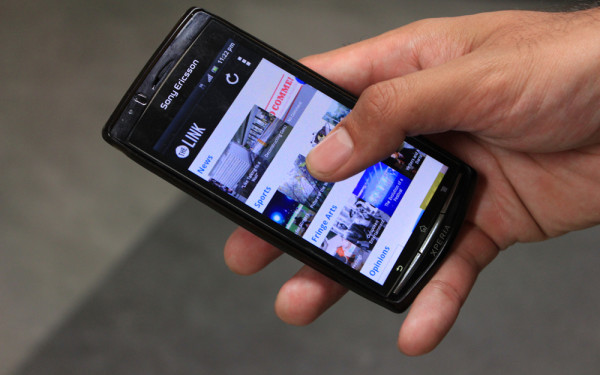The Debilitating Effects of Facebook Mobile
It’s morning—like, early morning.
I’m woken not by my alarm—the beautiful nightstand radio I so painstaking set every evening before bed. No, it wasn’t my predetermined awakener, the nearest NPR station, over in Vermont. Instead, I was startled into consciousness by the buzz of a Facebook message.
It’s a pavlovian response. Buzz, check; buzz, check. Over and over, forever. It’s so instinctual, it bursts through my sleep cycle to shake my subconscious back to reality; it’s so normalized, every person on the metro checks their pockets at the buzz, every person in the club feels their coat at that faked phone call in Kanye West’s “30 Hours.” It can’t even be called a drug, it’s beyond that: Facebook on our phones, it’s just become second nature.
It’s not only how most of us (millenials) wake up. It’s how we eat alone, it’s how we ride transit, it’s how we consume media, it’s how we interact with the greater world. Man, it’s even how we shit—I have a friend who scrolls on the toilet so often, she’s beginning to fear that she’s unwittingly training herself to vacate every time she opens the app.
The other day, I took Facebook off my phone. For the first hour, it was fabulous, like being the only one at your own perfect party. It was a blast—I was running through my house, getting work done all over the place, high-fiving strangers, just totally unshackled from the constant updating buzz of my interwebbed social sphere. It was a relief, in the truest sense of the word; it felt like quitting a job I hated.
I realized then how much of a stimulant it is, this habit of total-connectivity to everything all the time. It’s a constant state of being, a full-time job that stopped being fun a long time ago. I’m so fucking tired of putting in the work of social media, just building social capital that I can’t spend anywhere.
Christ, I hate to think of all the time I’ve spent just scrolling my feed, or checking likes on a status, or just looking at old photos of myself. It breeds narcissism. It’s like we’re all participating in our own long-form online performance art pieces, but the problem is, we’re all trying to do the same one. It’s been predetermined—this is how you can make your performance art piece your own, without straying too far from the status quo. You’ll be identifiably yourself, but not too much.
But it’s not “yourself.” It’s your Online Self, a fake self that you can break down to pixels and statuses, likes and emojis. It’s data, and it’s data that’s easily confused with reality. But it’s not. Reject the pavlov’s dog you’ve made of yourself, and divest from Facebook, you’ll be better for it.
Note: I was back on Facebook within a day.

_440_293_90.jpg)
_600_832_s.png)

_600_375_90_s_c1.jpg)
